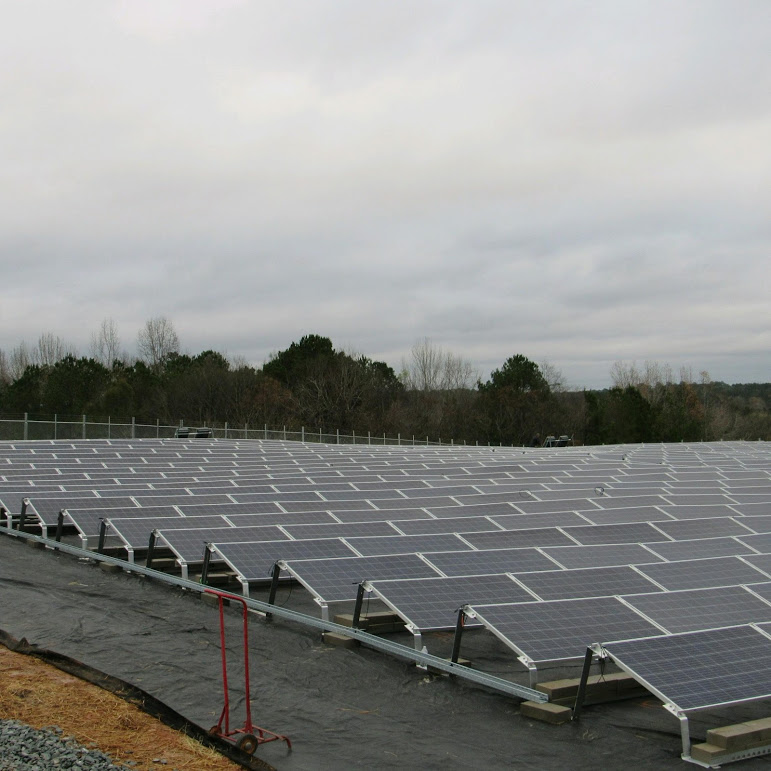Solar panels are being installed everyday in the Peach State, and for good reason. In addition to cutting down on local carbon emissions, many home and business owners are actually saving money on their electricity costs by installing solar panels. The trend has become so popular that Georgia Energy Data has created this fun, interactive solar map for you to track or add solar installations all across the state
Why Southern Georgia Businesses Should Consider Commercial Solar Panel Installations
Will all of the new solar installations, this causes many people to wonder, are solar panels worth it? In this article, we will focus on the return on investment a business owner can expect when choosing to install solar panels.
How to Calculate The Return on Investment (ROI) of Solar Panels for Business
Most solar panels have performance warranties for 20 or 25 years and will continue to work in some capacity for many years afterwards. With such long lifespans and relatively high startup costs, it’s important to know the return on investment of solar panels for your business. For commercial applications, most solar panel systems have an ROI of 45% or higher and a full payback period in as little as 5 to 6 years.
Below, we will outline the factors that should be considered when calculating the ROI of your commercial solar panel system.
Consider the Existing (and Rising) Costs of your Electricity
Depending on the type of business you run, electricity costs may be extremely high. If you are considering installing solar panels, you will be replacing some of this expense. Take a look at your electricity bills and fully understand the amount of kilowatt hours you are using and when you are using the most.
Businesses that operate during daylight hours will benefit the most from self-consuming the energy they produce with their solar panels. If a lot of energy is used in the evening or early morning, businesses may want to consider adding a battery to their system to use the energy produced during the day.
Check for your Net Metering Eligibility
As the state of Georgia does not require net metering, it is important to check with your local electricity provider to see the rate in which they buy back excess electricity produced by a commercial solar panel system. If your business produces more energy than it uses during the utility’s specified time frame, you will be able to reduce your electricity costs by selling the energy back to the grid.
Factor in Accelerated Depreciation
Whenever you install a solar power plant on your property, as a business, you are eligible for writing off taxes in the form of accelerated depreciation. As you are entitled to significant tax breaks in the first several years of operation, accelerated depreciation can lead to amounts as high as 34% of the total cost of the system.
Cash in on the Available Solar Tax Credits and Incentives in Georgia
Although Georgia does not have any statewide tax credits for incentives for installing solar panels. There are a few available benefits at the utility and national level. If your electricity provider is Central Georgia EMC, you may be eligible for a rebate of up to $450 per kilowatt installed. After 2022, your eligibility for a federal tax credit is going to depend on whether it is a residential or a commercial solar panel installation.
Residential
For residential solar customers in Georgia, those with panels installed by the end of 2020 are eligible for a 26% federal tax incentive towards the cost of their system. This will drop down to 22% for 2021 and will no longer be available for residential customers in 2022.
Commercial
As illustrated in the image above, the federal tax incentive will follow the same degradation for commercial solar installations with one important distinction. Commercial solar customers will be allowed to claim 10% of their system cost permanently, beginning on January 1st, 2022.
Conclusion
Installing a solar energy system on the roof of your business is a great way to produce your own clean, renewable electricity and save a lot of money on utility expenses. If you own a business in Southern Georgia or Northern Florida and would like to speak to an expert about installing solar panels on your business, please reach out to the Georgia Solar Pros.

